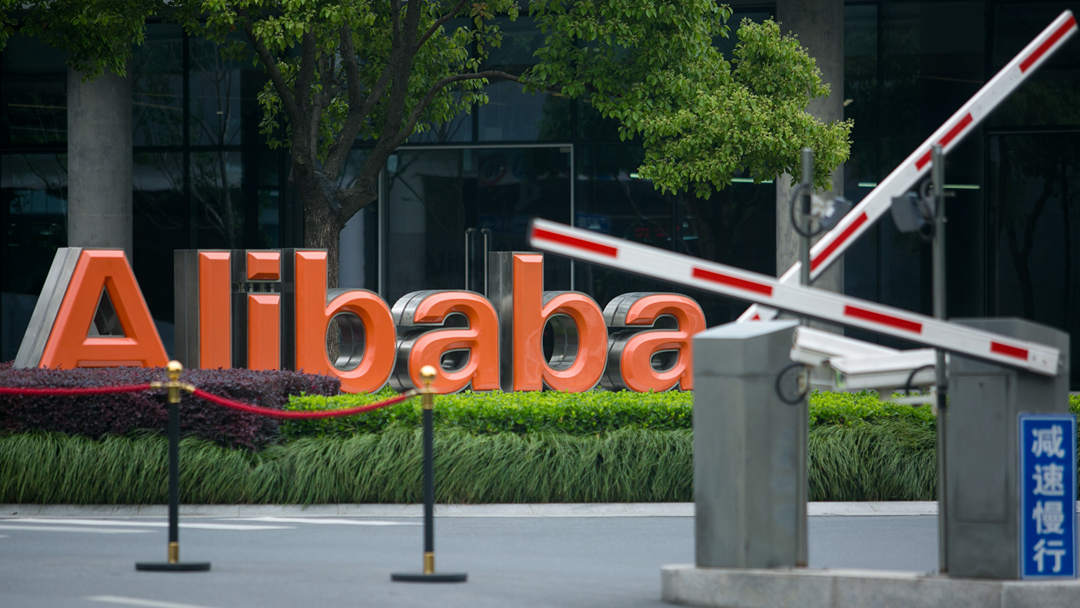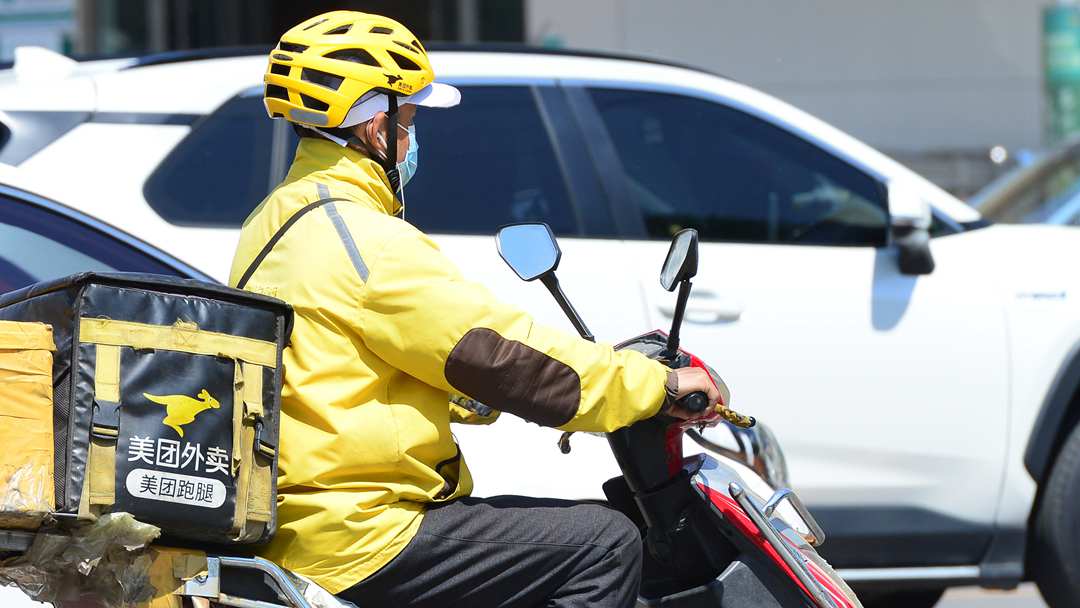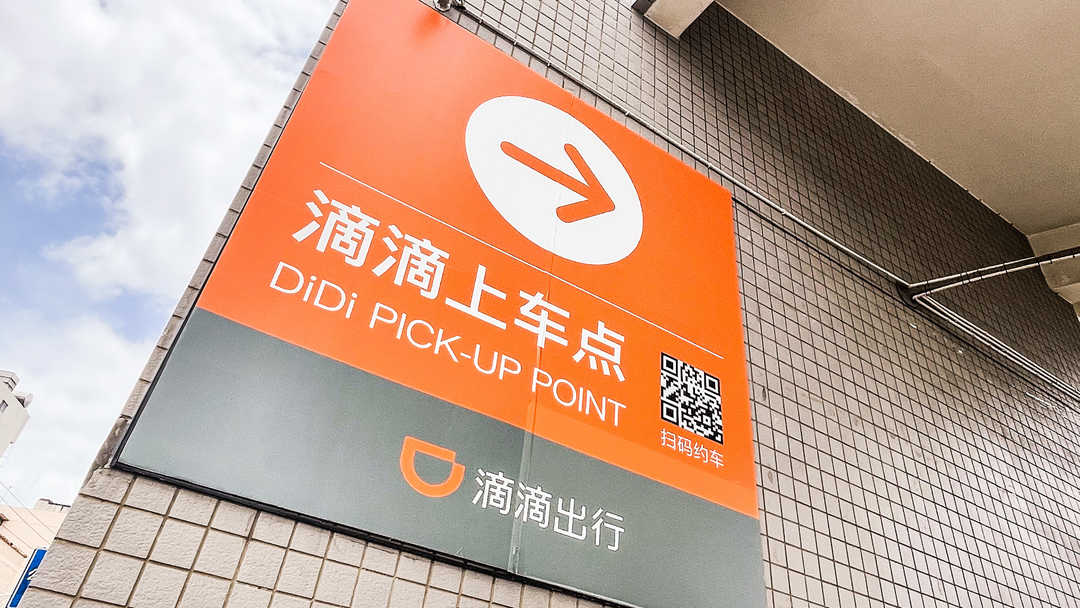Editor's note: China let some people "get rich first" four decades ago as the then poor country opened up and introduced a market economy. Now rising to become the world's second largest economy and officially getting rid of extreme poverty in a nation of 1.4 billion people, China has been increasingly emphasizing its higher goal, to strive for "common prosperity," so that all can share the fruit of economic and social progress. CGTN will run a series of stories to look into how the new policy shift has been reflected in reforms of its tax system, education, healthcare, jobs, market regulation and other fields. This is the second episode, and you can read the first here.
China recently tightened regulation on a number of internet platform-based tech giants, which has drawn international attentions, with some alleging China has been trying to rob the rich and targeting the private sector. Others are suspecting whether China is stepping back from reform and opening-up, and reining in the market economy.
However, government officials and experts have dismissed the "setback" theories, pointing out that the latest regulatory moves are merely part of the country's upgraded campaign to seek "common prosperity," not only for people of all layers of society, but also smaller businesses that could be strangled under market monopoly when a fair competitive environment is absent.
The authorities' antitrust measures have focused on leading tech companies in recent months. Food delivery platform Meituan, ride-hailing giant Didi, Chinese internet heavyweights like Alibaba, Tencent, JD.com and Suning.com have been investigated or fined for alleged monopolistic behavior.
E-commerce mammoth Alibaba received a record fine of 18.23 billion yuan ($2.8 billion) in April for its "pick one out of two" act that prohibited merchants from selling products on its rivals. Gaming and social media giant Tencent was barred from exclusive music deals. Meituan, Alibaba's Ele.me and Didi were also summoned for labor issues. They were investigated for their undisclosed mergers that were suspected of monopoly.

Chinese e-commerce giant Alibaba is fined $2.8 billion for abusing its dominant market position by China's State Administration for Market Regulation. /CFP
Chinese e-commerce giant Alibaba is fined $2.8 billion for abusing its dominant market position by China's State Administration for Market Regulation. /CFP
The country's recent antitrust efforts mainly aim at driving different players "to maintain fair market order and drive market innovations, which is equal for all market entities," said Zhong Gang, executive director of the Competition Law Research Institute at East China University of Political Science and Law.
"The very reason that recent regulations are focused on platform-based companies is that the concentration of some large internet platform companies has already affected the innovative vitality of the whole industry and the development of small and medium-sized enterprises," Zhang added.
The recent regulatory tightening on internet companies was consistent with the requirement of restricting income from "monopoly and illegitimate competition" mentioned in the 14th Five-Year Plan (2021-2025), Wang Tao, chief China economist at UBS Investment Bank, wrote in an analysis.
"It marked a turn from earlier years when the government encouraged 'some people, some region to get rich first,'" said Wang. "China is to make 'solid progress' towards common prosperity by 2035 and 'basically achieve' common prosperity by 2050. This means a more equal society with better social welfare as the country becomes richer and more advanced."
The central government has made it clear that common prosperity does not mean absolute equality for all members of society or the market.
It doesn't mean "robbing the rich to help the poor," but calls the rich to help those behind, Han Wenxiu, an official with the Central Committee for Financial and Economic Affairs told a briefing in Beijing in late August. He added that China encourages people to work hard and "guards against falling into welfarism trap."
"The regulatory moves were aimed at irregularities and illegal behavior, and absolutely did not target private companies," said Han. The senior official stressed that the country's antitrust measures treat all market entities equally.
Experts are saying China's antitrust move is nothing special among world economies. "Many other countries have also been exploring ways to make a balance between regulation and development," said Li Chao, chief economist at Zheshang Securities.
For example, the U.S. House committee in June passed six antitrust bills that target the Big Tech, especially Alphabet's Google, Amazon, Apple and Facebook, and attempted to rein in the giants' power as they crush or buy rivals. Since 2019, the U.S. federal government and states have charged the Big Tech with a series of antitrust lawsuits.
In a meeting presided over by Chinese President Xi Jinping on August 30, the Central Committee for Comprehensively Deepening Reform said that the strengthening of antitrust regulation means to improve fair market competition and regulate some platform companies' "barbaric growth and disordered expansion."
Read more: Xi highlights anti-monopoly regulation
During the meeting, President Xi also underlined efforts to foster a level playing field, create broad development space for all types of market entities, especially for the small- and medium-sized enterprises, and better protect the rights and interests of consumers.
Common prosperity has become a key theme in China's policy documents and recent speeches by senior leaders. Its importance has increased in the 14th Five-Year Plan and beyond.

Chinese food delivery platform Meituan is required to offer social insurance and no less than the local minimum wage to hard-pressed food deliverymen. /CFP
Chinese food delivery platform Meituan is required to offer social insurance and no less than the local minimum wage to hard-pressed food deliverymen. /CFP
Antitrust regulation on platform economy
"Chinese market regulators have taken a generous and inclusive attitude towards the booming internet industry over the past 13 years," said Liu Xu, a research fellow at the National Strategy Institute of Tsinghua University. He said the number of anti-monopoly enforcement cases in traditional industries far exceeded that of the internet industry during the period.
"Antitrust regulation is not to prevent the expansion of leading companies, but to prevent the barbaric growth of the giants," said Li Qiangzhi, a senior analyst with the China Academy of Information and Communications Technology. "Regulation is an element of the market, and effective regulation can promote the healthy development of the market."
China issued antitrust guidelines on the country's platform economy in February, signaling stricter antitrust enforcement against monopolistic behaviors in the country's internet platform sector.
Li revealed that China faces more severe monopoly problems. "For example, 'pick one out of two' act has never been found in the international market." So when Alibaba implemented it, the company abused its market dominance and prohibited merchants from opening stores or participating in promotional activities on other online retail platforms since 2015. The market regulator then slapped a record fine on it.
Tencent has also ended all exclusive music copyright agreements with related parties. Regulators barred it from such deals in July because it had increased leverage over upstream copyright parties due to its over 80 percent holding of exclusive resources.
The regulator announced in August that it had initiated an antitrust investigation into Meituan's acquisition of bike-sharing firm Mobike in April 2018. In late July, Meituan was also required to offer social insurance and no less than local minimum wage to hard-pressed food deliverymen.
Didi was also told in early September to better protect drivers' labor rights after the Ministry of Transport in August said it was considering setting an upper limit on commission taken by ride-hailing platforms. Its app has been removed from app stores for data abuse since July.

Ride-hailing giant Didi's app has been removed from app stores for data abuse. /CFP
Ride-hailing giant Didi's app has been removed from app stores for data abuse. /CFP
Tech giants heed the policy
"The recent new regulatory environment change reminded us of our role in society and compels us to innovate and better contribute to society at large," Meituan's founder Wang Xing said in August.
Wang translated the company's name as "better together" in Chinese and said "common prosperity" was "built into the genes of Meituan."
Alibaba said in early September that it will invest 100 billion yuan by 2025 in support of common prosperity. The funds will be used to promote investments in technology, support small and medium-sized enterprises, foster development in rural areas and improve insurance protection for gig economy workers, including deliverymen and ride-hailing drivers.
Pinduoduo, a fast-growing e-commerce giant that challenges Alibaba in rural areas, also announced an initiative of 10 billion yuan for farmers' welfare on its second-quarter earnings call.
Tech giant Tencent said in August that it would double the amount of money allocated for social responsibility programs to 100 billion yuan, which gave full play to the role of enterprises in the "third distribution."
"The government's common prosperity drive calls for encouraging the development of the so-called 'third distribution' – charity and donations," said Wang. "We should expect reforms and policy changes to encourage the corporate world to play a bigger role in common prosperity."
"We think the government is more likely to encourage corporations to shoulder more social responsibilities through moral suasion and tax incentives on donations, and do not expect any rule or legislation mandating charity work or donations like India did in 2013," said Wang.
Read more: Analysis: Common prosperity and policy implications
(Wu Gang contributed to the story.)

